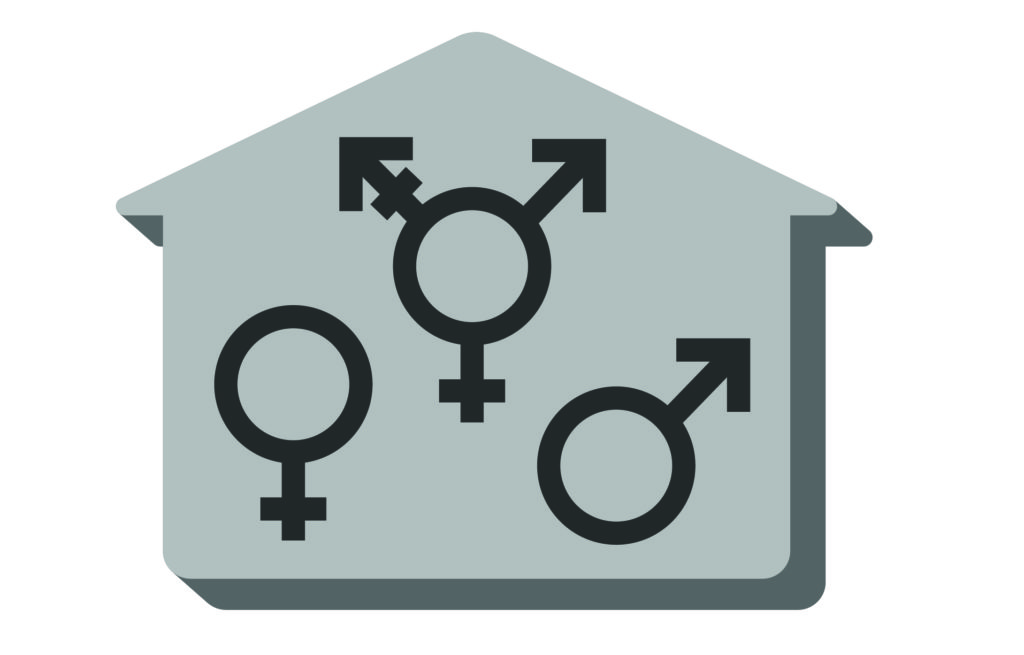The student group, The Gender Inclusive Housing Council, is working with administrators to implement gender inclusion in Seattle University’s Housing and Residence Life (HRL). They have presented to Seattle U’s Cabinet clear policy changes that they want to see regarding housing selection and placement.
Some of the changes include modifying the housing portal to accommodate trans people, as well as training housing staff to be more conscious of their trans residents and responsive to their concerns. The training would consist of using trans inclusive language, being conscious of trans issues, as well as being involved and knowledgeable in advocating for inclusive housing policies.
Currently, if a trans student tries to apply for gender inclusive housing, they must go through HRL staff instead of doing their housing assignments on their own, like most students. The council believes that this extra step increases inaccessibility and alienation for trans and non-binary students.
Second-year student Andie Carroll is a member of the council, and they were part of the group who presented their proposed policy changes to Seattle U’s Cabinet. They explained that the housing portal does not accommodate for gender identity at all, categorizing students by their sex alone. The council wants to see a gender inclusive housing option in the portal, allowing students to either opt in or out of the new housing option.
“Right now, the housing portal asks for your sex, and it asks for your gender. You can put in whatever you want for your gender identity, but it still spits you out into one of two categories,” Carroll said. “For example, if a trans man’s legal sex is female and his gender is male, they would be put into the female pool of roommate applicants.”
Further, even if students go through HRL for housing assistance, they may not be housed in a room that they prefer or a room where they feel comfortable given that trans inclusive policies are still not implemented. Oftentimes, they have no choice but to opt for a single room in either the Yobi or Murphy Apartments, which are considerably more expensive and often inaccessible without elevators.
Evelyn Chow, a fourth-year student and a member of the council, added that placing trans and non-binary students in single rooms can be isolating and unfair. In addition to the extra housing costs a single room entails, the students will be denied the college living experience as well.
“The whole point of the first and second year in college is to make friends. This is when relationships begin to happen,” Chow said. “But if you’re getting isolated into the Yobi and Murphy Apartments, you’re not only paying more money, but you don’t have the same access to people.”
As part of their presentation, the council also noted Seattle U’s multiple attempts and failures of trans inclusion. According to their timeline, Tim Albert, the associate director of HRL, first submitted a formal gender inclusive housing policy for review in 2012, but it did not pass.
This summer, HRL was given permission to begin the process of remodeling the housing portal. Students are now able to update their information, including adding a preferred name and pronouns. Currently, Albert reported that they are attempting to create an inclusive way to assign housing that is not based on a binary understanding of gender.
Albert and the HRL team are currently working on the housing portal to provide more options for students when identifying gender. As of now, the three options available are male, female, and “other.” The goal for the new housing portal is a final product that will be able to recognize all student gender identities, giving them the option to navigate housing options on their own, rather than going through their staff. There is no proposed official timeline for when these changes will be implemented fully.
“We don’t want to say ‘other’ for our students,” Albert said. “We want to be able to provide our students with options where they can identify in different ways so that it doesn’t have to be on a binary.”
The Gender Inclusive Housing Council is also working with Alvin Sturdivant, the vice president for student development, to write a gender inclusive housing policy. In August, the council had received the policy that Sturdivant had worked on with the Office of Multicultural Affairs. After months of communication between Sturdivant and the council, they scheduled a meeting on Nov. 14 to discuss the policy.
“What we want is for him [Sturdivant] to say that he wrote our policy, and it will be implemented for Winter Quarter,” Carroll said. “That would be ideal.”
Asma may be reached at
agaba@su-spectator.com









